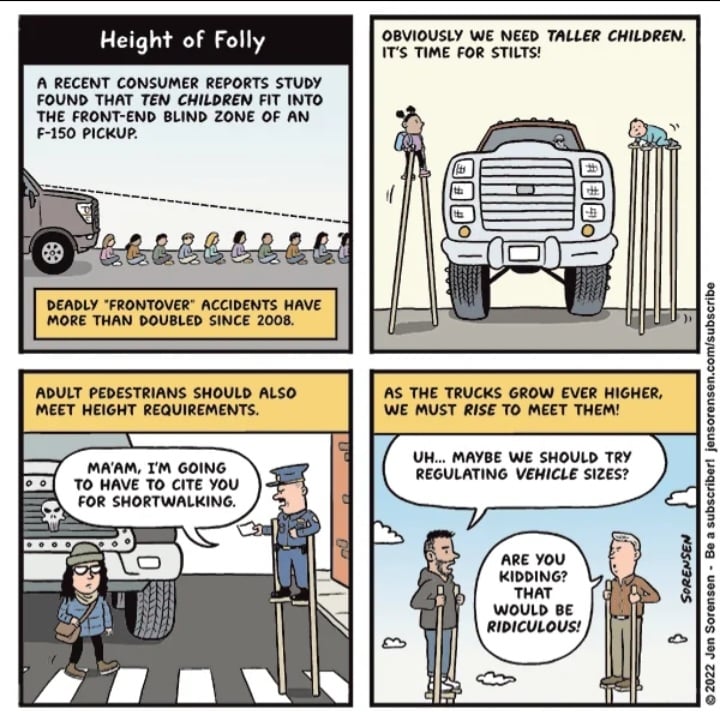Fuck Cars
A place to discuss problems of car centric infrastructure or how it hurts us all. Let's explore the bad world of Cars!
Rules
1. Be Civil
You may not agree on ideas, but please do not be needlessly rude or insulting to other people in this community.
2. No hate speech
Don't discriminate or disparage people on the basis of sex, gender, race, ethnicity, nationality, religion, or sexuality.
3. Don't harass people
Don't follow people you disagree with into multiple threads or into PMs to insult, disparage, or otherwise attack them. And certainly don't doxx any non-public figures.
4. Stay on topic
This community is about cars, their externalities in society, car-dependency, and solutions to these.
5. No reposts
Do not repost content that has already been posted in this community.
Moderator discretion will be used to judge reports with regard to the above rules.
Posting Guidelines
In the absence of a flair system on lemmy yet, let’s try to make it easier to scan through posts by type in here by using tags:
- [meta] for discussions/suggestions about this community itself
- [article] for news articles
- [blog] for any blog-style content
- [video] for video resources
- [academic] for academic studies and sources
- [discussion] for text post questions, rants, and/or discussions
- [meme] for memes
- [image] for any non-meme images
- [misc] for anything that doesn’t fall cleanly into any of the other categories
Recommended communities:
view the rest of the comments

It has to do with new standards for fuel effiency being based on the size of the vehicle.
Basically, it was easier to make bigger trucks than it was to build more efficient engines, so we have this gargantuan trucks pushed on us and then they go "ITS WHAT THE PEOPLE WANT" because there are literally no other options besides these giant trucks if you want something with a bed.
Like, even the "small trucks" like the modern Rangers and Colorados are about the same size as the 90s F150s and Silverados. Its nuts.
And even still, if you're not looking for 4 doors you're doubly SOL. You can have the fleet vehicle, poverty-spec or you can have crew cabs.
Again, proof that more regulation is the root cause.
Regulations are not the issue. Short sighted regulations with loopholes you could drive a new F150 through are.